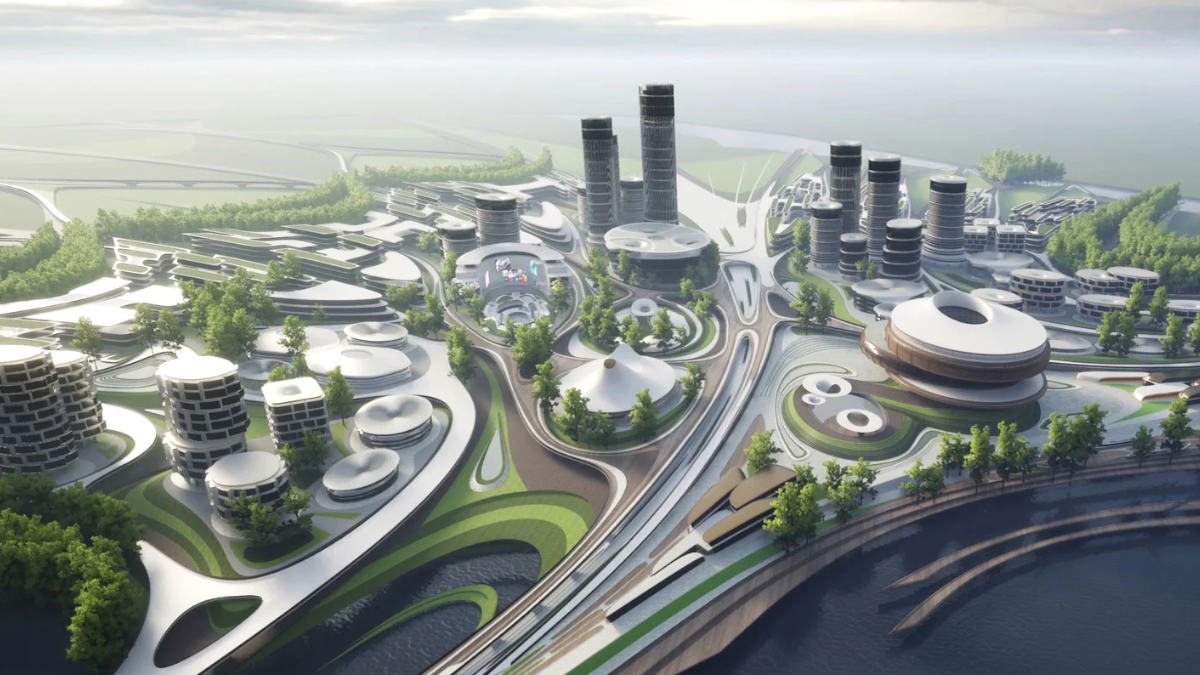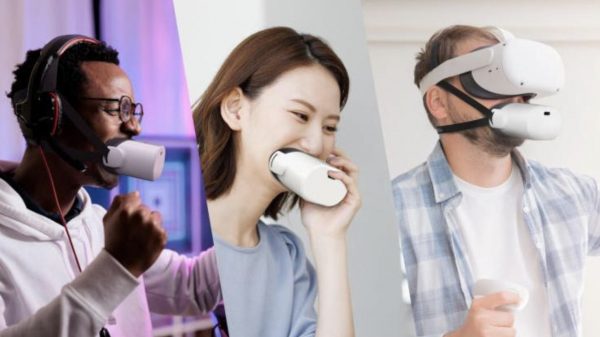The real world and virtual ones are forever merging, but usually it’s the virtual world trying to replicate a real-world counterpart. This isn’t the case for Liberland. The self-proclaimed micronation set out to be the first country to be built and inhabited within the virtual world before its real-world state is realised. Architects are still working on Liberland metaverse designs to create a virtual world that interconnects with its real-world counterpart. The melding of these worlds has piqued interest elsewhere too. The Dropp app uses a 3D city interface to bring our virtual social networks and real life together. Recent studies also show that those looking for love are willing to expand the search into the metaverse. Who knows, maybe one day we’ll be living a life which resembles that of Ernest Cline’s Ready Player One.
Original story by Paige Cook follows:
The metaverse can mean many different things many different minds. Is it simply an experience where you can gather socially but existing in a purely digital world? Does VR have to play a part? Are all of these experiences a way to disconnect from the real world or can they work hand in hand with it?
One proposal seeking to take metaverse concepts is the building of Liberland, a real-world self-declared Balkan micronation which is looking to initially debut in the metaverse before becoming an identical real-world location.
Liberland was first founded in 2015 and while isn’t currently formally recognised as a country it does have 7,000 approved residents and with a further 700,000 applications for citizenship currently being processed. We previously reported on Liberland and how British architecture studio Zaha Hadid Architects was working on its virtual reality build-out.
Zaha Hadid’s principal architect, Patrik Schumacher is a supporter of Liberland and its future goals both physically and virtually. Schumacher has theorised that the metaverse will provide co-location synergy and a collective immersive experience, he also states that “The metaverse is neither a game nor fiction. Virtual reality in the metaverse will be no less real than the physical reality in our cities”.
Real world architects building virtual spaces
While many current metaverse projects are grounded in the world of video games Schumacher believes “it will be the architects and no longer graphic designers who will design the coming 3D immersive internet: the metaverse.” While it seems unlikely that architects alone would dominate the space of creating the metaverse, it does make sense to have them involved. Architects could provide expertise on the design of each building all the way up to creating a full city. These designs, rather than being ‘fantasy’ virtual constructions could be realistically built and achievable real-world places by using an architect’s real-world skill.
The question is, is part of the appeal of virtual worlds the aspect of achieving what cannot be achieved in the real world? Virtual worlds are able to act as playgrounds for our visions and an architect grounded in the world of real-world designs may impose restrictions that – perhaps in less experienced hands – wouldn’t otherwise exist.
The metaverse as a template for real life
The idea of digital representations of real-life cities isn’t a new concept. Liberland is looking to assert itself in the virtual world before doing so physically in the real world. Similarly digital twins already exist in cities such as Singapore and Shanghai, whose digital twins work to improve life around the city, helping monitor energy consumption and even traffic flow.
Such digital twins are currently simulations and virtual models designed to try new ideas and test the limits of existing infrastructure. They don’t act as social spaces at present… But they could in the future. Merging these models and the real world their based on would see the creation of a metaverse that would not only replicate a real city but also constantly adapt and change as real-world data is processed.
If this were to happen users could choose how to go about their day. Imagine waking up in the morning and the digital version of your city shows a major traffic jam meaning you’ll be late for work, so instead, you go to work in the virtual version of the city rather than the physical.
A metaverse experience that locks the virtual world more closely with the real one is clearly an interesting and useful advance that – in a sense – makes the metaverse make more sense.
Or would such constraints only kill the freedom and sense of escape that the metaverse could potentially deliver?
Paige Cook is a writer with a multi-media background. She has experience covering video games and technology and also has freelance experience in video editing, graphic design, and photography. Paige is a massive fan of the movie industry and loves a good TV show, if she is not watching something interesting then she's probably playing video games or buried in a good book. Her latest addiction is virtual photography and currently spends far too much time taking pretty pictures in games rather than actually finishing them.






































